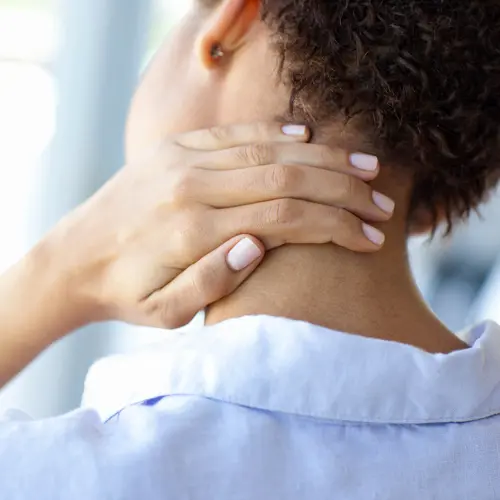When you have ankylosing spondylitis, your back can be stiff and painful, your neck might hurt, and you can have fatigue. The disease can affect various parts of your body and increase your chances of getting certain conditions.
Iritis
You may quickly notice your vision is blurry and that one of your eyes hurts, is sensitive to light (photophobia), and looks red. These may be symptoms of iritis (anterior uveitis), a typical ankylosing spondylitis complication. If you have ankylosing spondylitis, it’s important to get treatment fast if you suspect you have iritis so that you don’t have vision loss. Corticosteroid eyedrops are a common remedy.
Joint Inflammation
It can become hard and painful to use your knees, hips, shoulders, or other joints when you have ankylosing spondylitis. This is because inflammation from the disease damages them. Your doctor may recommend joint replacement surgery if there is too much destruction.
Enthesitis
The areas where tendons, ligaments, or joint capsules connect to bone are entheses. Inflammation can happen there and lead to pain. It often affects the back and bottom of the heel, upper part of the shinbone, and the meeting points of the ribs and breastbone.
Inflammation in different parts of your chest can eventually make it difficult and painful to breathe deeply. If you have any kind of chest pain, talk to your doctor to make sure you don’t have another condition.
Spine Fusion
Sometimes, ankylosing spondylitis can cause bones in the back to fuse together. The fusion can create a permanent posture and may make your back curve forward (kyphosis). It also limits how you can move your spine and can make you less able to take deep breaths if your ribs are impacted. Your chances of fracturing bones in your back are also higher when fusion happens. Osteoporosis is common with fusion as well. Your doctor may do surgery to fix the rounding, but that is rare.
Spinal Fractures
When ankylosing spondylitis starts, the bones in your spine and hips can become thinner or weaker because of osteopenia or osteoporosis. This makes you more likely to have backbone fractures. Those can be dangerous for your spinal cord and nerves. The bones in that area may also crumble if they are brittle. This can make a hunched-over position more intense. Medication is one way you can make your bones stronger.
Heart Issues
You can lower your risk for some heart problems by talking to your doctor about lifestyle changes or medication that can help. Issues you are more likely to have are:
- Cardiovascular disease, which is the phrase for a variety of issues that affect your blood vessels and heart, like a stroke
- Inflammation of your aorta and aortic valve (aortitis). The aorta circulates blood from your heart through your body.
- Problems with your heart muscle, which doctors call cardiomyopathy
- An unusual heartbeat, also known as arrhythmia or dysrhythmia
Gut Inflammation
Inflammation can affect your digestive tract as well. You may also get inflammatory bowel disease. Both situations can cause stomach pain and diarrhea.
Psoriasis
This immune condition creates patches of excess skin cells on your skin. They may be flaky, red, and itchy. There isn’t a cure, but treatments like medication and creams can help.
Cancer
The chances of men and women with ankylosing spondylitis having cancer in blood-forming tissue are greater, according to one large study. Men are more likely to have bone and prostate cancers, while women have a higher risk for colon cancer.
Dementia
You may be more likely to get dementia and Alzheimer’s dementia, findings from research suggest.
Depression and Anxiety
The likelihood that you will develop depression and anxiety is higher if you have ankylosing spondylitis. You should feel as good as you can emotionally and physically, so be sure to talk to your doctor about any changes to your mental health.
Amyloidosis
In rare situations, amyloid protein can collect in organs like the kidneys, liver, and heart. They can’t work right because of this. You may have various symptoms like swelling from extra fluid, weight loss, and a hard time breathing.
Cauda Equina Syndrome
It rarely happens, but when nerves at the bottom of your spine are crammed together, you can get this condition. Contact your doctor right away if you lose feeling or have pain in your buttocks or lower back, can’t manage your bladder or bowels, or have a hard time walking because of leg weakness.
Lung Problems
These issues aren’t common, but they can still happen. Your lung capacity could go down because you can’t move your chest well. The top of your lungs may have scars or fibrosis. Or recovery from upper respiratory infections can be slower because your lungs don’t work as well.

